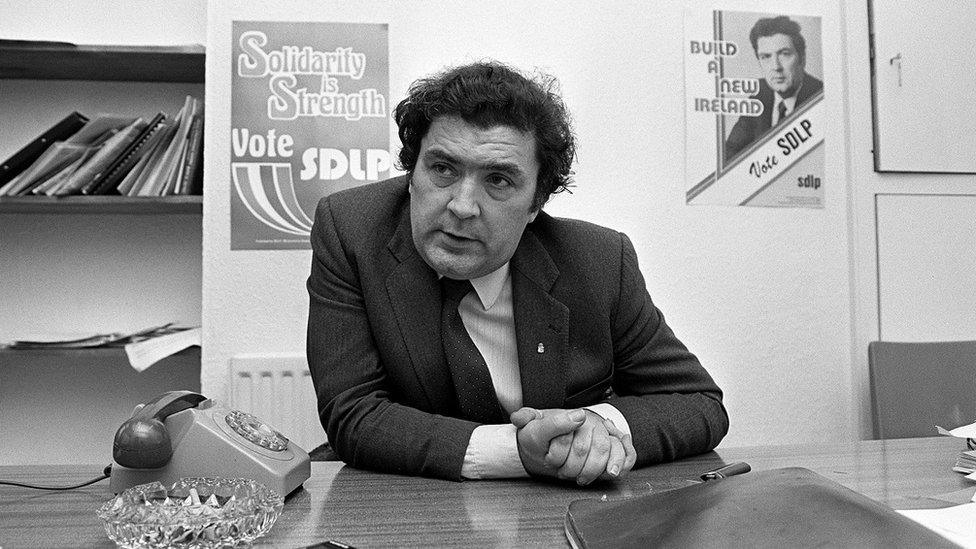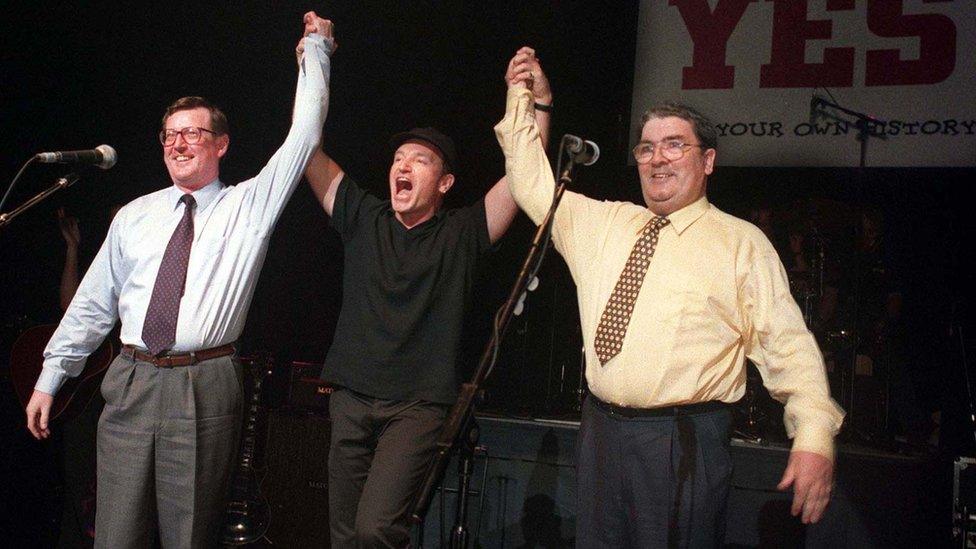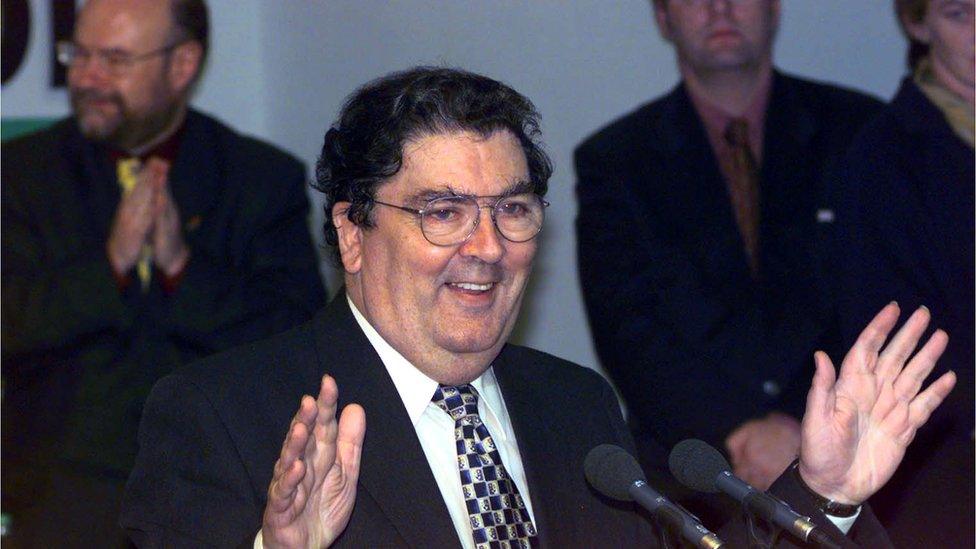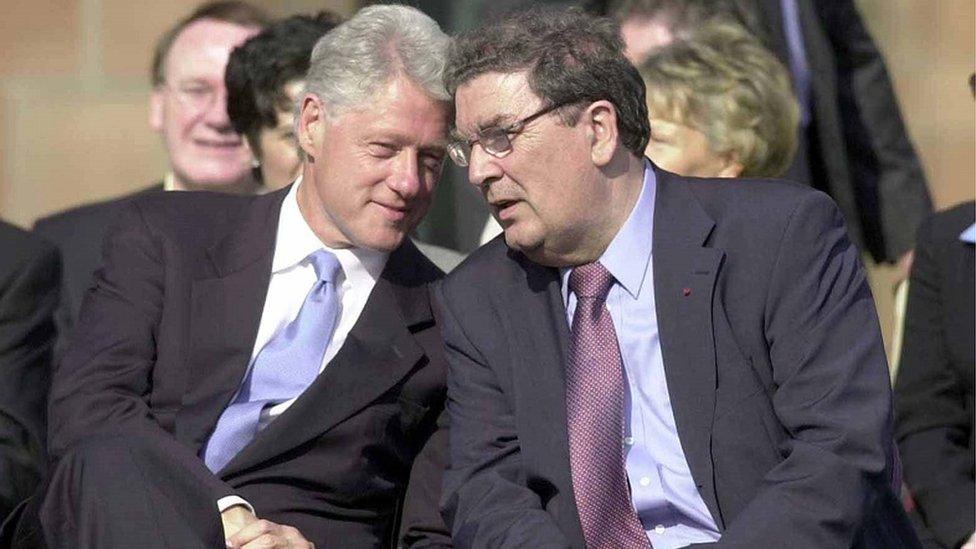John Hume: A lasting legacy and a place in history assured
- Published

In 2004 I was filming with John Hume in central Belfast as he canvassed during a European election.
In between handing out leaflets for the man he hoped would succeed him, the former SDLP leader got into a conversation with someone raising money for an international development charity.
John Hume professed support for the cause and suggested that perhaps he could make an appearance at some future event.
But the "chugger" - presumably rewarded on commission - wasn't interested. He just wanted Mr Hume's bank details.
Back then it was pretty unusual to come across someone who didn't instantly recognise the Nobel Peace Prize winner and architect of the Good Friday Agreement.
However by 2020 this reaction is likely to be more commonplace.

John Hume was one of the highest-profile politicians in Northern Ireland for more than 30 years
There are young people who are well aware of John Hume's contribution - as evidenced by those interviewed for this website and by a thoughtful contribution from Derry singer Paul Connolly of the Wood Burning Savages to BBC Radio 5 Live.
However, it is 19 years since John Hume stepped down as party leader.
Moreover, due to his dementia, his distinctive voice and powerful message fell silent in the public arena much earlier than should have been the case.
So it may be necessary to remind many people of the context in which John Hume operated.
He battled first against inequality and deprivation, then against the spiral of paramilitary and state violence.

You may also be interested in:
Former presidents to current prime ministers were among those to pay tribute to Mr Hume's illustrious career
A life in pictures: Illustrating the life of one Northern Ireland's foremost political leaders

At times when it seemed there was no way out of that spiral, John Hume argued consistently for dialogue and partnership.
Other voices of reason - the Peace People of the 1970s or campaigners like Gordon Wilson, who lost his daughter Marie in the Enniskillen bombing - demonstrated the tenacity and moral courage required to demand an end to the bloodshed.
However, only John Hume was able to unpick the lock of the Troubles.
He argued for power sharing at home but also cultivated influential allies abroad.
He drew on the example he had seen in the European Union, by turning Britain and Ireland's one-dimensional argument over a line on the map into a more nuanced debate about people exercising their own free will to determine their future.
Politicians from across the political spectrum pay tribute to John Hume
Moreover, he ensured the Good Friday Agreement, external was endorsed by a referendum held simultaneously on both sides of the border and included the prospect of a future vote on Irish unity.
By including these elements, Hume constructed a potent democratic counterblast to the long held view of militant Irish republicans that only the IRA truly represented the will of the Irish people.
He was courageous and principled, but also skilful in being able to get inside the minds of his opponents in order to deduce what they required to move out of their comfort zones.
Having given up on the priesthood, John Hume spent some time as a history teacher before getting embroiled in politics and civil rights.
Some who paid tribute to him have made comparisons with historic Irish nationalist leaders such as Daniel O'Connell and Charles Stuart Parnell.
In Hume's case, those parallels seem apt rather than overstated - his place in the history books is assured and his approach to resolving an intractable conflict may well still yield valuable lessons for the future.
- Published3 August 2020

- Published4 August 2020

- Published3 August 2020
